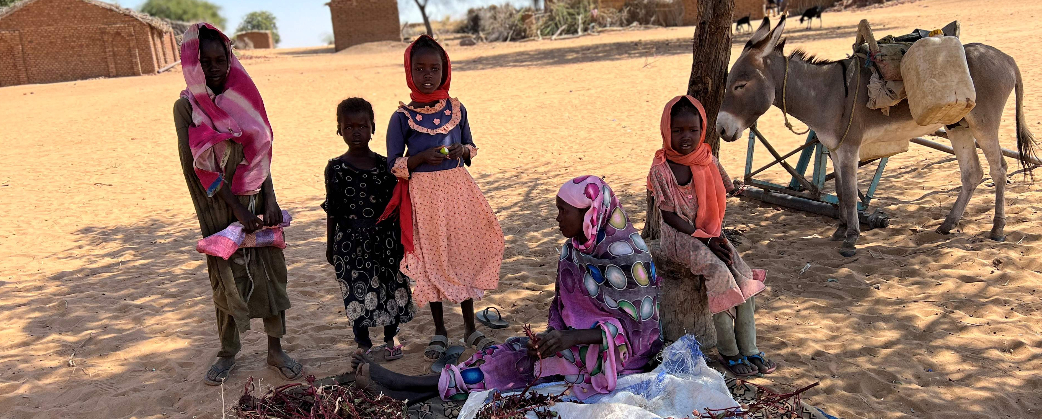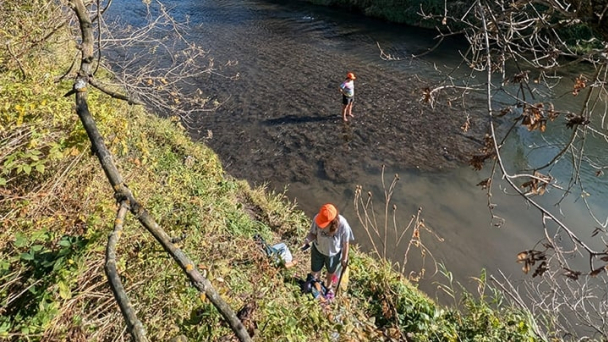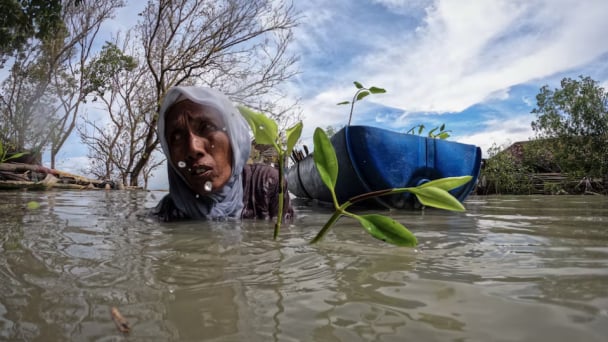May 10, 2025 | 22:52 GMT +7
May 10, 2025 | 22:52 GMT +7
Hotline: 0913.378.918
May 10, 2025 | 22:52 GMT +7
Hotline: 0913.378.918

A beneficiary of a FAO seed distribution activity in 2022 in Sudan is sitting outside her house with children in the village of Abu-Delaik in El-Fashir, North Darfur.
The current crisis in Sudan has worsened an already dire food insecurity situation, with hunger expected to increase substantially across the country as it heads into the typical lean season period from June to September.
To scale up its response, the Food and Agriculture Organization of the United Nations (FAO) urgently requires $95.4 million to reach 15 million people with multiple life-saving interventions including providing farmers with seeds and farming equipment and protecting and restocking pastoralists’ livestock herds.
FAO’s immediate plan is to assist over one million vulnerable farmers and their families (totalling five million people) between now and the end of July with cereal seeds (sorghum, millet) and okra seeds for planting in June to July 2023 in the country’s 14 states. Additionally, from July until the end of the year, FAO aims to target 1.3 million pastoralists with livestock services and inputs to strengthen the food security and nutrition of 6.5 million people.
The Organization’s emergency seed distribution, totalling 9 600 tonnes to the most vulnerable farming households in June and July, will allow vulnerable farmers to plant and produce enough food (up to 3 million tonnes of cereals) in November–December 2023 to cover the cereal requirements of between 13 and 19 million people.
“We are doing everything we can to utilize the relatively calm conditions in rural areas and the current planting season to rapidly increase local food production and availability, save lives and avoid more people sliding into acute food insecurity,” said Adam Yao, FAO Representative a.i in Sudan.
FAO remains operational in the country’s 14 state offices. State authorities and local community leaders, as well as 40 national implementing partners continue to confirm their readiness to resume operations and support FAO emergency seed distribution.
Food security situation remains dire
In 2022, the number of people at crisis or worse levels (Integrated Food Security Phase Classification [IPC] Phase 3+) during the lean season was estimated at 11.7 million. Given the likely ripple effects of displacement, trade disruptions, and surges in food and fuel prices, the number of highly food insecure people in the country during this year’s lean season could be above last year’s figure.
Moreover, according to the latest IPC analysis, in the post-harvest period between October 2022 to February 2023, nearly eight million people were estimated to be acutely food insecure – a figure already 30 percent higher compared with the same period in the previous year.
“The current crisis has hit at a critical time for the millions of people reliant on food and agriculture,” said Rein Paulsen, Director of FAO's Office of Emergencies and Resilience. “We have a short but crucial window now to support local food production considering direct threats to other forms of life-saving assistance and difficulties in ensuring the rapid and safe passage of humanitarian goods across international borders. Boosting local food production and safeguarding livelihoods will not only reduce the food insecurity and human suffering in the country, but eventually lower the likely expanding humanitarian caseload in the coming months.”
(FAO.org)

(VAN) FAO's Director-General emphasises the need to work together to transform agrifood systems.

(VAN) Europe is facing its worst outbreak of foot-and-mouth since the start of the century.

(VAN) The central authorities, in early April, released a 10-year plan for rural vitalization.

(VAN) Viterra marked a significant milestone in its carbon measurement program in Argentina, called Ígaris, reaching 1 million soybean hectares measured.

(VAN) Minnesota study adds to growing evidence of human-accelerated erosion, which could jeopardize agriculture.

(VAN) QU Dongyu addresses International Conference of the Global Mountain Dialogue for Sustainable Development in Kyrgyzstan.

(VAN) Rising sea levels are becoming a real threat in Indonesia. On Java island, a woman keeps planting mangrove trees to protect her home from the sea.